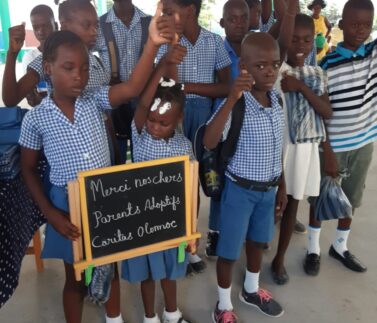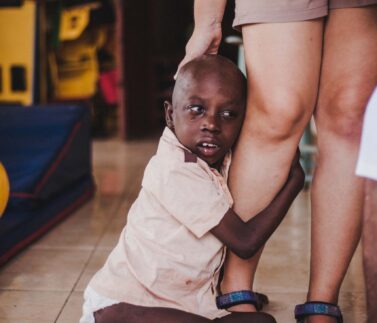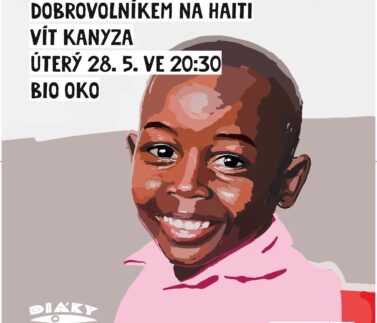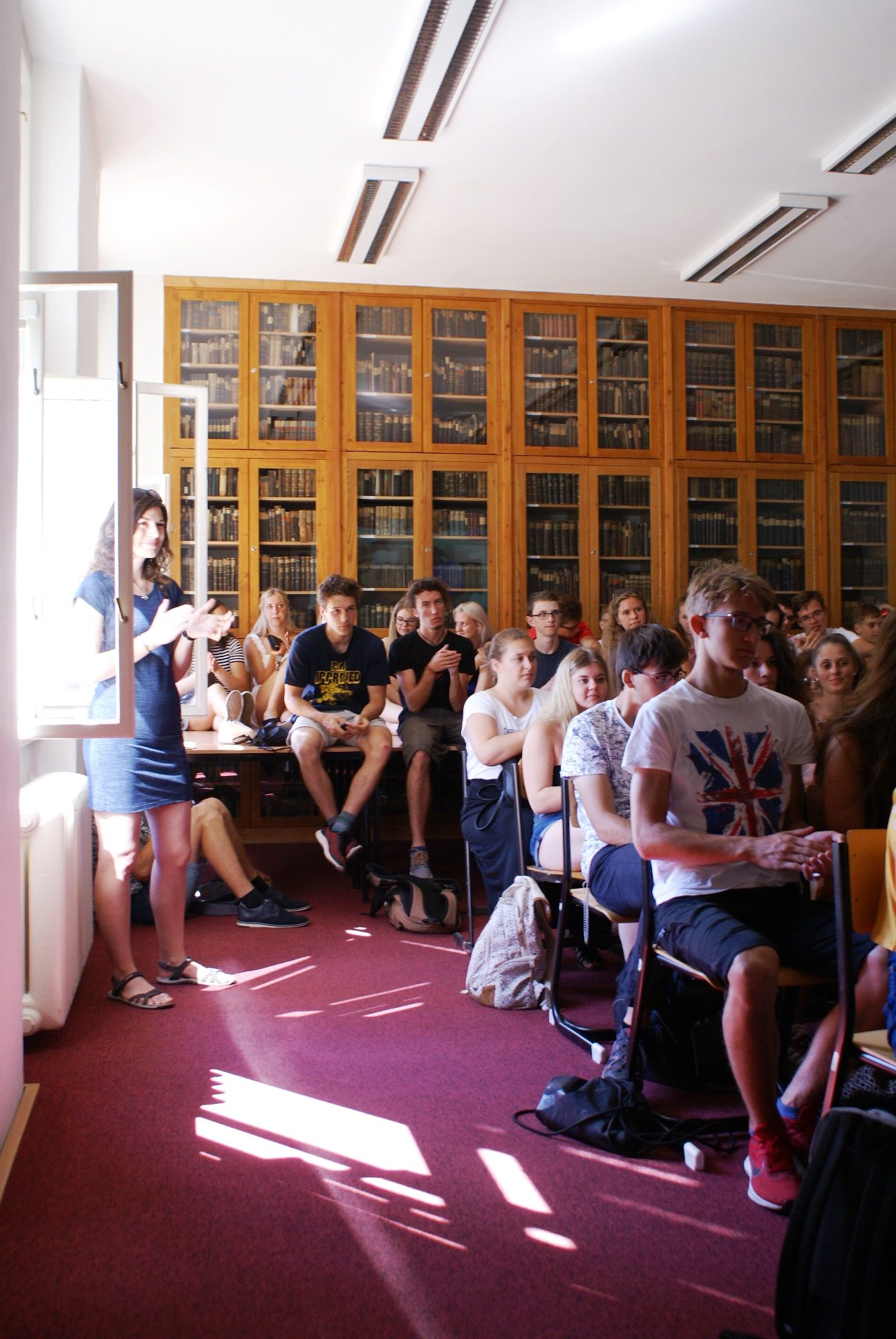
The multicultural day also offered young people a “holiday” in Haiti
Hradec Králové – Music, singing, dancing, smell of delicacies, interesting lectures, quizzes … And also various countries from all over the world. The Diocesan Caritas Hradec Králové organized a Multicultural Day for Gymnasts at the end of the school year. Thus, Haiti and Klára Lőffelmann’s humanitarian worker belonged to one of the school premises. Under the auspices of the Archdiocesan Charity Olomouc, it has helped three times in a collapsed state.
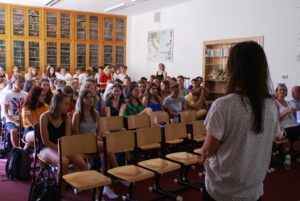
“What do you think of when you say Haiti?,” Klara asks the students. On the canvas behind it is a photograph of the beach surrounded by the sea on one side and palm trees on the other.
“Caribbean!” One of the boys reports, and he’s right.
“Beautiful beaches, clear sea, green trees, big hotels!” Scream other students.
“Sure, a holiday in Haiti would be fine. Well, let’s see, let’s go… ”smiles the humanitarian worker, and her lecture opens the door to the young people where a mosquito bite can be deadly, where the earth is shaken, where there is poverty, lack of drinking water, but also the joy of the present.
The indigenous people of Haiti were Indians, they served as a labor force, but they were not enough, and so the colonists began to bring slaves from Africa to Haiti. “In Indians’ language, Haiti actually means a mountainous country,” Klara adds.
Haiti was the first black republic in the world, but the people there did not know how to deal with freedom, faced dictators, and the problems still exist. According to Klara, the state cannot take care of its inhabitants, life is hard there. A city appears on the canvas, and above it a sky full of black, thick smoke.
“Here we met a rally in Port au Prince. A crowd of people is on the streets, burning tires, smashing cars, looting shops. It is better to turn and run the car,” says Klára, saying that Haitians are currently demonstrating against a corrupt government. There are only a few fabulously wealthy people in their country, and other people are making a living.
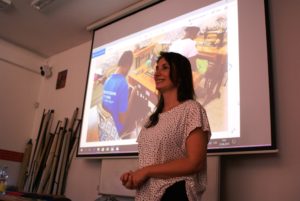
In the next picture there is a bunch of clutter and a wild boar rides in it. Right in the city center. “There’s a big garbage problem. From time to time it accumulates and ignites or exports to the port,” says Klára. Students find out that most of the beaches are polluted, the beautiful ones that are taken care of are found only in resorts. However, the vast majority of locals cannot afford to stay there.
South Haiti is green, agricultural, north is more semi-desert to desert. The problem with water is all over the country. Before children go to school, they have to go with heavy canisters for water. They do the same after they arrive home from school. “In order to have something to wash, to cook in, to wash…” explains Klára.
Young people also learn about the earthquake, but also about what is being grown in Haiti and how specifically and to whom the Archdiocesan Caritas Olomouc is helping.
“And what is the main goal of your activities? Is it long-term?,” one lady asks.
“The goal is for the Haitians to be educated; So that they can craft so they can help themselves,” says a humanitarian worker. One of the options is the Child sponsorship programme, when Czech donors pay children education and hot school food daily. The program includes really the poorest children. “We literally pulled one boy off the street. Now he’s the best pupil,” says Klára Lőffelmannová, a good ending story.
Karolína Opatřilová, Archdiocesan Caritas Olomouc

